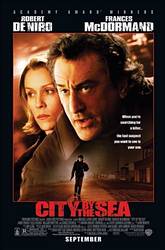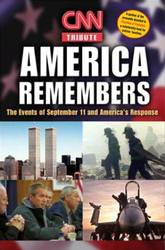 Director: Starring:
OTHER REVIEWS: Taxi
Driver The
Town is Quiet The
Yards You Can
Count on Me |
City by the Sea BY: DAVID PERRY New York Daily News reporter Mike McAlary became an icon for the news media in the 1990s -- his prose style was almost as commanding as the crime stories he somehow became privy to. His claim to fame occurred in 1997 when he received an anonymous phone call about New York police officers sodomizing a suspect with a plunger. His articles on the Abner Louima case and the "blue wall of secrecy" brought McAlary a Pulitzer Prize. McAlary died in 1998, leaving behind a profession of investigative journalism that held him as the closest thing to a 1990's Woodward and Bernstein. Though the Louima story was important from a historical aspect, a more professionally challenging McAlary piece came with his 1997 Esquire story on the possibility of a "murder gene" found in the LaMarca family. Titled "Mark of a Murderer," the story looked at the way Joey LaMarca may have inherited a gene from his grandfather, Angelo LeMarca, which led him to kill a two-bit junkie in the dilapidated neighborhood of Long Beach. Creating an even more puzzling side to this story, though, was the person that connected Joey to Angelo: father/son Vincent, who was a lauded member of the Long Island police force. City by the Sea tries to do with McAlary's article what Dog Day Afternoon did with the P.F. Kluge and Thomas Moore article that inspired it. But the end product in this case is not near as affective as Sidney Lumet's 1973 masterpiece. Part of the reason is that City by the Sea screenwriter Ken Hixon hasn't enough belief in the true story the film is purporting to be. What was in reality a drama that tried to understand familial lives in the cutthroat world of Long Beach has now become an inarticulate police drama that pits father against son instead of allowing their unusual relationship to run the show. The film does use the estrangement between Vincent (De Niro) and Joey LaMarca (Franco) that began when the father walked out on his wife (LuPone) and child. However, much of the drama has been muted by trying to place Vincent into the criminal investigation for Joey. This was a case that captured a reader's attention because of the dynamics to its history, but the possibility of a father serving in a police force after his son (which didn't happen -- Vincent had already retired when the case came to the Long Island police). For heaven's sake, Joey LaMarca intentionally murdered James Winston, but the filmmakers want Joey to seem sympathetically by making it an accidental killing of a drug dealer. Even the story of Angelo LaMarco is so lightly brushed over that the main thrust of McAlary's article is lost within the movie meant to recreate it. Instead, Hixon felt more at home working with hackneyed characters and story elements that are blatant additions for the sake of moving the story along. These trappings would not be so damaging were they not so clichéd and uninteresting. This is a movie that adds the overzealous media, a smarmy drug lord (Forsythe), a portly police partner (Dzundza), a sharp new detective (Mount), and a smart lover (McDormand). So clichéd are these characters that two of the performers (Dzundza and McDormand) have played them many times before in more successful movies (including Basic Instinct and Wonder Boys, respectively). While the occasional interludes with the genealogy of morals that made the first story interesting does bring the film back from the dreck, uninventive performances from most of the cast reminds us why this worked so much better as simply one man's article. James Franco and Eliza Dushku as the film's young couple are nearly devoid of appeal -- while both are attractive people, they seem to think that slurring speech and looking wistfully is method acting. Meanwhile, Robert De Niro and Frances McDormand as the film's old couple show some odd chemistry (romantic chemistry, of course, has been one of De Niro's few problems as an actor) though most of their scenes are filled with dialogue that cannot be covered by fine acting. Even when ruining the true story with all the artistic additions, the filmmakers do find a fine route to take to establish the setting. By showing the deterioration of Long Beach in relation to the story (the film takes its title from the nickname given to the once vibrant 1950s beachfront destination), the movie gets a good Atlantic City vibe that cannot be overlooked. Even though the drama is nothing compared to Louis Malle's film, the chance to look at the way a place can decay in such little time is astounding (for the record, though, most of the film's exterior shots are of Asbury Park, New Jersey). Director Michael Caton-Jones worked with De Niro previously
in This Boy's Life, another glance at the relationship between father and son
(though, in that case, it was a stepfather instead of an estranged one). Both of these
films are hurt by an impenetrable self-righteousness filled with thick helpings of
heavy-handed morality. In the end, though, the problems are more inherent to City by
the Sea since it had somewhere to go instead of a straight "don't be an absentee
dad" story. Mike McAlary proved it. |



